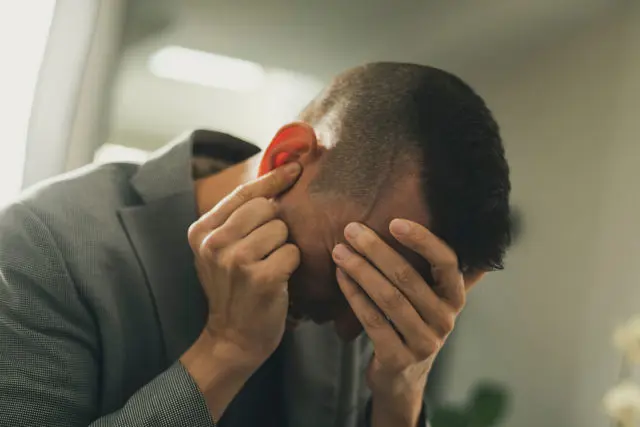Nowadays, due to varied lifestyle changes, mental breakdowns have become pretty common these days. People have very little time for themselves and never realize how much their lifestyle has an impact on their mental well-being. In this regard, we can also talk about how bipolar paranoia is also increasing in people to a great extent.
You probably know that paranoia is a belief that people are following you or conspiring against you. In fact, it is also a symptom of psychosis in bipolar disorder that can be treated medically along with other strategies. Needless to say, people often use the term “paranoia” loosely in conversation. However, it’s a serious and challenging symptom of psychosis that occurs when an individual loses contact with reality. So if you would like to know more about whether you are suffering from this particular condition or not, let us take a glance at this article.
What Is Bipolar Paranoia?
As we said earlier, bipolar paranoia is a persistent belief that someone is out to get you, conspiring against you, following you, or persecuting you. Do you know that if someone is surveilling you, that’s not paranoia? A key thing about clinical paranoia is that it can’t actually be true. It is just a figment of your mind.
In other words, paranoia is unlikely to be the only symptom affecting a person with psychosis and bipolar disorder. There can be other symptoms of psychosis, which may include:
- Disrupted, disorganized, or hard-to-understand speech or thought patterns
- Hallucinations ( A condition where you visualize things that other people do not see or recognize)
- Hearing voices
- Having fixed, false beliefs
- Difficulty managing daily activities
- Difficulty knowing what is real and what is not
What Are The Causes For Bipolar Paranoia?
Many of you might be wondering about the actual causes of bipolar paranoia, right; let us discuss them here. Here are the causes:
- Genetical factors are often responsible for causing bipolar paranoia. Well, in certain cases, it seems to run in families. If family members have this disorder, you might also get it genetically.
- At times, a stressful circumstance or situation can often trigger the symptoms of bipolar disorder. Well, it can be due to the breakdown of a relationship or any physical, sexual, or emotional abuse. Often, it can also be due to the death of a close family member or loved one. So it is quite natural that mental breakdown would take place in such cases.
- Chemical imbalance in the brain can be one of the causes of bipolar paranoia. Doctors have also found evidence proving the same. For instance, there is evidence that episodes of mania may occur when levels of noradrenaline are too high, and episodes of depression may be the result of noradrenaline levels becoming too low.
What Are The Treatments For Bipolar Paranoia?
Are you or any of your close family members suffering from bipolar paranoia? Well, then you will find your answers here as we shall discuss how this condition can be treated. At times, these episodes of depression may last longer, up to 6 to 12 months. However, with effective treatment, episodes usually improve. Usually, most people with bipolar disorder can be treated using a combination of different treatments; let us take a look:
- You can take the help of medicines to prevent episodes of mania and depression. They are known as mood stabilisers, and you take them more or less every day on a long-term basis.
- Also, you learn to recognize the triggers and signs of an episode of depression or mania.
- Psychological treatment, like talking therapies, can also help you deal with depression and provide advice on how to improve relationships.
- Often, doing regular exercises and planning activities that you enjoy gives you a sense of achievement and advice on improving your diet and getting more sleep.
How Can You Recognize Triggers?
If you have bipolar disorder, you can learn to recognize the warning signs of an approaching episode of mania or depression. A community mental health worker, such as a psychiatric nurse, may be able to help you identify the early signs of relapse from your history.
This will not prevent the episode from occurring, but it’ll allow you to get help in time. So why not get treated at the right time before it is too late and lead a happy and peaceful life with your near and dear ones?
What Kind Of Psychological Treatment Can You Get?
If you feel that psychological treatment works the best for you, you can use it along with medicines in between episodes of mania or depression. So it can include the following therapies:
- Psychoeducation
This can be one of the most common forms of treatment that you can opt for in the case of psychological treatment. It can also help you know more about bipolar disorder.
- Cognitive Behavioural Therapy (CBT)
While treating depression, nothing can be as useful as Cognitive Behavioral Therapy. It is a highly effective treatment that has yielded positive results among many patients from all over the world.
- Family Therapy
This is a type of talking therapy that focuses on family relationships like marriage. In addition, it encourages everyone within the family or relationships to work together to improve mental health. Family plays a vital role in becoming a big support in case of any sort of mental health issues.
Ending Note
So, as we conclude, we can say that bipolar paranoia has become quite common these days due to the busy schedule of our lives. Therefore, if you feel that you need treatment to lead a better lifestyle, don’t delay any further; consult a doctor.

